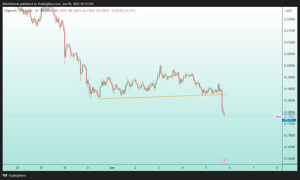
- Japan mandates domestic crypto custody for exchanges to protect users if foreign platforms collapse or face bankruptcy.
- New rules allow stablecoin issuers to back half their tokens with low-risk assets, easing reserve requirements slightly.
Japan’s parliament approved changes to the Payment Services Act on June 6 to protect local crypto investors. The revision orders crypto platforms to store customer assets within Japan. This move aims to prevent losses if a foreign exchange collapses or goes bankrupt.

In 2024, hackers stole over $305 million worth of Bitcoin from a Japanese platform. This breach exposed gaps in how exchanges safeguard user funds. Consequently, lawmakers concluded that holding assets overseas adds risk. Therefore, they decided to require domestic custody.
The new law also introduces a flexible framework for businesses that connect users with crypto services. Under this model, game developers and app makers can offer in-game tokens more easily. In turn, players will gain access to crypto features without using a traditional exchange.
Additionally, the law updates rules for trust-type stablecoins. Issuers can now back up to fifty percent of their token supply with low-risk assets. This change gives companies more room to experiment. However, they must keep at least half of stablecoin value in secure holdings.
Moreover, every firm dealing with crypto must register under the revised act. Registration requires strict anti-money laundering and counter-terrorism financing measures. Firms will face regular audits and must report suspicious transactions to regulators.

The amendment follows a Federal Financial Supervisory report issued on February 19, 2025. That report examined international and domestic legal grounds for crypto data sharing. It laid out how Japan would align its rules with global standards.
Meanwhile, legislators in the Lower House passed the bill in May. The Upper House approved it on June 6. Once the enactment period ends, exchanges must comply within twelve months. As a result, the first fully compliant platforms should operate by mid-2026.
Before any foreign crypto exchange can hold Japanese clients’ assets, regulators will review its stability. They will use existing review tools, the same ones that monitor bank accounts. This method ensures that only partners who meet strict criteria can receive data.
Furthermore, the law depends on mutual interest. In other words, Japan will share information only with countries that request it. Those nations must also follow the OECD’s Crypto-Asset Reporting Framework. Without that alignment, Japan will not exchange tax or account details.
Unexpectedly, the European Union will roll out similar rules under its eighth update to the Administrative Cooperation Directive. Known as DAC 8, this update obliges EU states to gather crypto data from service providers. Consequently, Japanese firms dealing with EU clients must prepare for cross-border reporting by early 2026.
The post New Japanese Crypto Law Focuses on Domestic Asset Protection and Global Data Sharing appeared first on ETHNews.


